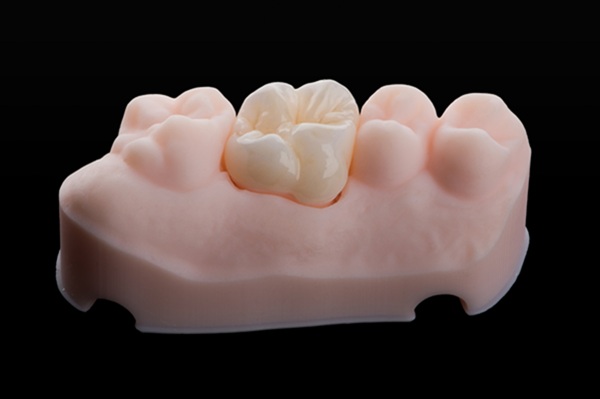What to Do When You Have a Broken Tooth

A broken tooth is a serious and sometimes scary matter that can be treated by a dental professional in various ways, depending on its severity. However, there are certain things that you should do before arriving at the dentist to restore the health and appearance of your broken tooth. This review discusses how to handle a broken tooth properly to help ensure that the issue does not worsen or cause more discomfort than necessary.
The six-step process of dealing with a broken tooth
During the phone call with the dentist, the staff can help the patient determine whether it is best to visit the dentist immediately or wait for a more suitable time. Regardless, cleaning the mouth and controlling the bleeding and discomfort is important before going to the dentist for treatment.
Determine the cause
The first thing a patient should do may seem simple but it is, in fact, a crucial step. Determine the causing factor of a broken tooth. For some, this will be easy if it happened during an accident such as a sports injury or even while chewing something hard such as ice cubes, popcorn kernels, or candy. However, for others, it may not be as simple. Sometimes, a broken tooth can be a result of hidden decay that weakened the tooth and causes the break.
Call the dentist
Regardless of the severity of the broken tooth, it is important to call the dentist to find out the best course of action to take. Depending on the level of pain the patient is in and their symptoms, the dentist may recommend coming in right away for broken tooth treatment, or they can provide care instructions to help the patient control their symptoms until they can arrive at the dentist's office at a more convenient time.
Clean the mouth
Keeping the mouth clean is the number-one goal with a broken tooth. Patients can do so by using a saltwater rinse several times a day and drinking water throughout the day to keep bacteria washed away. Mix one teaspoon salt and eight ounces of warm water to prepare a solution. Then the patient will swish the solution around their mouth for about a minute. It is also important to avoid eating foods and drinks containing a large amount of sugar and practice good oral hygiene regularly until dental appointments.
Stop the bleeding
If there is any blood in the broken tooth's immediate aftermath, it is a sign that the patient may need to visit the dentist for emergency dental care. The dentist can control minor bleeding with the use of gauze applied to the affected tooth. Apply the gauze after cleaning the mouth.
Relieve the pain
Patients can relieve the pain of a broken tooth by taking over-the-counter pain relief medication (as directed). If there is swelling associated with the pain, apply a cold compress to help reduce it. The patient can use ice packs or even bags of frozen vegetables (if it is an emergency) as a compress. It is important to note never to apply the cold compress directly to the mouth or on the skin. Wrap the compress in a cloth first. If the dentist recommends waiting a day or two before coming in, the patient should stick to a diet of soft foods and foods and drinks that are room temperature to avoid irritation.
Visit the dentist
Do not neglect to visit the dentist after a broken tooth. Often, the initial symptoms go away, but it is still important to visit the dentist for restorative treatment, even if there are no symptoms. Broken teeth can lead to infection, pain, and additional tooth loss. A broken tooth or teeth can spread bacteria into other parts of the patient's mouth, leading to more severe damage, such as spreading infection into the jawbone or brain. The dentist is equipped with technology such as X-ray machines and necessary materials to properly assess the extent of the break.
Call our dental team today for broken tooth treatment
If you are in need of broken tooth treatment, then contact our dental practice today. We can properly assess your symptoms and help you determine an effective and custom course of action. We may recommend that you come into our office for prompt care if there is pain or excessive swelling, or we may provide you with at-home care instructions until you can come in at a more convenient time.To schedule an appointment at Prince William Dental’s Gainesville office, call us at (703) 662-8287.
Check out what others are saying about our dental services on Yelp: Emergency Dentist in Gainesville, VA.
Recent Posts
A tooth abscess is a dental emergency because it has a risk of the infection expanding to other parts of the body. If an abscess spreads to the brain, it can have life-threatening effects.Abscesses can be incredibly painful, and the pain is often accompanied by swelling. The severity of the pain and swelling is often used…
An emergency dentist is a practitioner who provides relief to patients with an immediate dental concern. Emergency dental patients are almost always walk-in patients who need prompt treatment. Often, emergency dentists have availabilities the same day for patients experiencing an emergency. While emergency dentists can provide any oral health concern, they often treat dental abscesses,…
Finding a good emergency dentist should be a priority for people of all ages. Nobody wants to deal with tooth pain, even for a short amount of time. Dental emergencies should not be taken lightly. Exposed nerves in the tooth can cause extreme pain during chewing.Cracked teeth will begin to turn grey as the tooth…
Breaking a molar is classified as a dental emergency. It is one of those things most people would rather not deal with, but it can occur regardless of how healthy one's teeth are.First off, a broken tooth should not be confused with a chipped or cracked one. Most chips and cracks do not require immediate…


